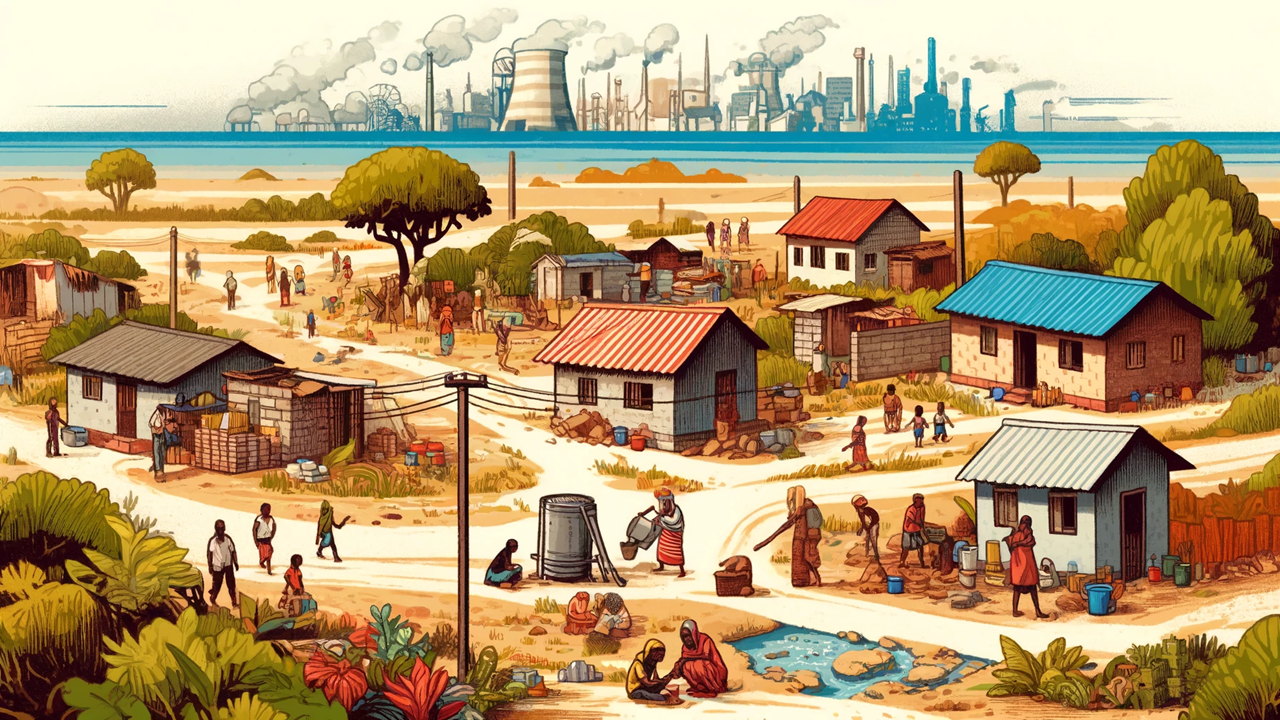The Great Reversal: How Global Crises Are Setting Back Developing Nations
A recent World Bank report titled "The Great Reversal" reveals how global crises such as the COVID-19 pandemic and climate change have severely set back development in IDA countries. These nations, which house a large portion of the world's extreme poor, face immense challenges that threaten to reverse decades of progress. The report calls for comprehensive policy measures and substantial international support to help these countries recover and sustain development.

In the wake of a series of global crises, the world's most vulnerable countries are experiencing a dramatic regression in development, according to a recent World Bank report. Titled "The Great Reversal: Prospects, Risks, and Policies in International Development Association (IDA) Countries," the report highlights the stark challenges faced by these nations, which account for a significant portion of the world's extreme poor. From the COVID-19 pandemic to climate change and economic disruptions, the combined impact threatens to undo decades of progress.
The IDA Mission in Peril
Founded in 1960, the International Development Association (IDA) was created to elevate living standards in the world's poorest nations. Over the years, IDA countries made notable strides in various development indicators, such as access to basic services, life expectancy, and poverty reduction. However, the recent cascade of crises has created an unprecedented setback. "The landscape we face today is far more complex," remarks Ajay Banga, World Bank Group President. The economic slowdown, climate crisis, and rising conflict have compounded the existing challenges in these nations.
Characteristics of IDA Countries
IDA countries, which include 75 economies eligible for low-interest loans and grants, are marked by significant vulnerabilities. These countries are home to nearly one-quarter of the global population but over 70 percent of the world's extremely poor. Their economies are often heavily reliant on commodity exports, making them susceptible to global price fluctuations. Additionally, they face considerable exposure to climate-related natural disasters, weak institutional frameworks, and high levels of public debt.
Recent Developments Amid Overlapping Crises
The report chronicles the impact of recent global crises on IDA countries. The COVID-19 pandemic brought GDP growth in these nations to a mere 0.3 percent in 2020, the lowest rate recorded since the early 1980s. The recovery has been sluggish, hampered by subsequent crises such as the Russian invasion of Ukraine, which spiked global inflation and tightened financial conditions. As a result, growth projections remain subdued, with the period from 2020 to 2024 expected to be the weakest half-decade of growth since the early 1990s.
Near-term Growth Prospects
Looking ahead to 2024-2025, the outlook for IDA countries remains bleak. The report predicts only modest growth, insufficient to significantly improve development trajectories. Inflation is expected to remain high, further straining the already fragile economies. The combination of pre-existing vulnerabilities and new challenges, such as the impacts of climate change and increasing violence, casts a long shadow over prospects.
Addressing the Challenges
To counter these setbacks, the report emphasizes the need for comprehensive policy measures and substantial international support. It highlights several critical areas for investment, including infrastructure, education, and healthcare. Domestic policy reforms aimed at enhancing economic frameworks, governance, and human capital are crucial. Additionally, leveraging natural resources and demographic advantages can play a significant role in driving future growth.
Global Support is Crucial
The report underscores the importance of global support in helping IDA countries navigate their development challenges. Enhanced cooperation on global policy issues, such as climate change mitigation, debt restructuring, and facilitating cross-border trade and investment, is vital. The international community's sustained financial and technical assistance is essential to prevent further regression and promote sustainable development.
"The Great Reversal" paints a stark picture of the development trajectory for IDA countries amid ongoing global crises. It is a call to action for both domestic policymakers and the international community to step up efforts in addressing these pressing challenges. Without significant intervention, the progress made over the past decades risks being undone, with devastating consequences for the world's most vulnerable populations.
ALSO READ
Amplified Rossby Waves and Climate Change: Key Drivers of Intensifying Heatwaves in India
Delhi Ministers Lead Massive Tree Plantation Drive to Combat Climate Change
President Murmu Urges MES Officers to Focus on Climate Change Adaptation
Supreme Court Judges Call for Comprehensive Climate Change Solutions
Supreme Court Advocates for Permanent Climate Change Commission in India










